Is your Fido too “into” his paws and limbs lately? Does he ignore his favorite chew toy and focuses on chewing and slurping away on his own limbs? Although weird and quite unbecoming around guests, most dog owners tend to ignore it completely.
However, you should know that it can be a cause for concern. So, why do dogs lick and chew their paws and how much is too much?
Contents
Why Do Dogs Chew and Lick Their Paws?
Your dog licking and chewing his paws can be a common behavior or something you need to worry about. Here are some reasons why dogs tend to chew and lick their paws:
1. Cleaning
Throughout their life, every Fido is bound to chew their paws and limbs at least once. Dogs tend to clean their paws by licking or chewing them when dirty. Similar to felines, some dogs also like to lick their paws to clean their faces.
This is considered healthy and normal.
But, when your dog licks or chews too much even if their paws don’t look dirty, then it is time to start looking for the underlying cause for their behavior.
2. Allergies
Dogs tend to develop seasonal allergies to molds and pollens. They can also become allergic to chemicals or cleaning products you use on your carpets or floor that tends to be harsh on your dog’s paws.
In addition, new soaps or shampoos can also cause allergic reactions. Food allergies can also be a culprit, often resulting in skin irritation which affects various parts of their body, including their paws.
Some doggos can develop reactions to a particular protein in their food such as dairy, lamb, chicken, beef, soy, eggs, wheat or corn. However, it can be difficult to identify the culprit on your own.
3. Parasites
Mites, fleas, and ticks most certainly lead to itchy sensations. And your Fido may try to address this itchy problem by chewing out or licking away the little buggers.
While you can easily find ticks roaming around your dog’s body, fleas can be difficult to pinpoint and mites are rarely visible unless they have run rampant on your doggo.
4. Dry Skin
Just like us humans, dogs can also experience dry skin, especially in arid climates or during the winter season. And instead of barking at you to moisturize their skin with some lotion, dogs will excessively lick on their paws to relieve the dry, itchy feeling of their less-moisturized paw pads.
In addition, dry skin even in humid environments can be an indication that your furry buddy is not getting enough fatty acids on his diet.
5. Wounds, Injuries, and Infections
Dogs sometimes lick or even chew their paws too much to nurse an injury like a puncture or wound on their toe pads, a fractured toe or claw or they may be a splinter, burr or any foreign object in his paw.
So, if your furry buddy is particularly active running off-leash on new environments, then this could be the best reason.
In addition, some dog breeds like the Lurcher and Greyhound breeds tend to grow corns. These are painful growth found on the toe pads of dogs which can cause them to chew or lick on their paws in the hopes of relieving the pain.
Furthermore, the constant biting, licking, and chewing can cause a secondary yeast or bacterial infection which can cause even more itchiness and discomfort.
6. Psychological Issues
Like any animal, dogs tend to over-groom themselves when they are feeling bored, depressed, lonely or anxious.
And licking or chewing their paws can be their temporary drug to calm themselves or when they do not receive enough affection, stimulation or play.
Some dogs tend to be naturally anxious, particularly rescue dogs who experienced abuse or neglect and will do anything like licking or chewing their limbs too much to alleviate their stress, fear or anxiety.
Symptoms and Signs of Excessive Chewing and Licking of Paws
Here’s an important thing to keep in mind.
Although you do not see your dog biting or chewing their paws, it does not mean that they are doing it.
For instance, dogs chewing on their paws just because they are anxious or bored will have no desire to do this when you are around. In addition, a dog that has gotten into trouble for biting their paws will choose to leave the room to chew and do the behavior when you’re not around.
Thus, it is important that you look out for the signs, especially if your Fido has a history of chronic paw chewing or prone to boredom or anxiety.
Here are some of the symptoms and signs you need to look for:
- Paws with red-stained fur which is caused by porphyrin, a red pigment in dog’s saliva and tears
- Swollen paws
- Signs of skin inflammation
- Smelly paws
- Open wounds
- Warm paws
- Patches of missing hair, particularly on the paws
- Limping
- Growling or hiding paws when touching them
Treatments and How To Stop Your Dog From Chewing and Licking His Paws
The good news is that there are some treatments and ways on how to stop your dog when you caught him enjoying as he licks or chews on his paws.
1. In Case Of Allergies
If you think your dog is itching because of food allergy, then you will have to check out which ingredients are making him allergic and avoid it.
If you recently used a new shampoo or conditioner on your dog and you see him itching all over and chewing on his paws, then you probably want to switch to his old brand.
Don’t use harsh chemicals in cleaning your carpets, floor, and furniture as they can cause problems on your dog’s sensitive paws.
In addition, if you or your neighbor recently sprayed pesticide or insecticides in the yard, make sure that you stop your dog from roaming around just until the chemicals are gone.
2. In Case Of Parasite Infestation
Paw chewing due to parasites is very easy to resolve by using the right parasite treatment.
However, if your dog has a severe parasite infestation, then you need to ask for professional help, taking your doggo to the vet for a stronger or even repeated treatment.
To prevent parasite infestation, you also need to keep using parasite preventive measures so that your Fido will not get it in the first place.
3. In Case Of Dry Skin
If the goal of the chronic licking and chewing is to moisturize their dry skin and paws, then you can simply treat it with moisturizing balms specialized for dogs.
Also, if your dog’s diet is lacking the essential fatty oils, make sure to change his diet and add planet oils to keep his coat and skin healthy.
You can just mix a bit of avocado oil, olive oil, coconut oil or fish oil into your dog’s food several times a week. Or you can try giving him a supplement as well as feeding him specially-formulated food.
4. In Case Of Wound Or Injuries
You can prevent your dog from chewing his wounded or injured paws by wrapping it in gauze. In the case of fractures, you can ask your vet to put a cast until it heals.
In addition, you need to make sure that you give him a full course of any oral or topical medications, particularly antibiotics prescribed by your vet.
Paw licking and chewing due to burrs, splinters or foreign objects can be stopped by removing the cause. However, you need to be extra careful since dogs tend to be grumpy and wary of you touching their paws when sore.
Furthermore, regular trimming and grooming can help prevent ingrown or fractured nails. A shorter fur also minimizes the chances of foreign objects sticking to it that can cause punctures and wounds.
You can also make your dog wear booties when walking on concrete, asphalt or other rough terrains that can wound or injure their feet.
5. In Case Of Psychological Problems
If your furry buddy’s chronic paw licking and chewing are caused by psychological distress, then make sure that you spend more time with your dog and play with him regularly. You need to give him plenty of affection.
If you can’t do this, you can consider hiring a pet sitter or dog walker or arranging for a doggy daycare to alleviate their stress or boredom.
For severe cases of anxiety, especially on abandoned and abused dogs, you can ask your vet to prescribe anxiety medication.
6. Breaking The Habit
Lastly, if your furry buddy chews and licks his paws out of habit, getting him to stop this behavior can be difficult.
Training your dog earlier and consistently stopping your dog whenever he tries to lick or chew his paws can help. In addition, your vet can also offer some medications that help control your dog’s obsessive impulse to lick and chew their paws.
In addition, make sure that you provide your dog with plenty of safe and healthy options to chew on such as bones or chew toys. This can help distract your dog from chewing his paws out of habit.
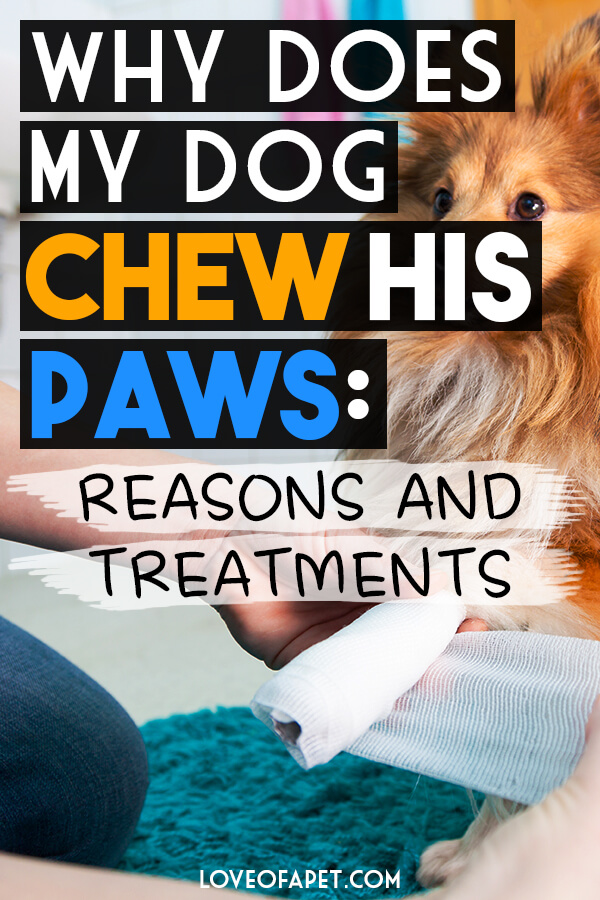

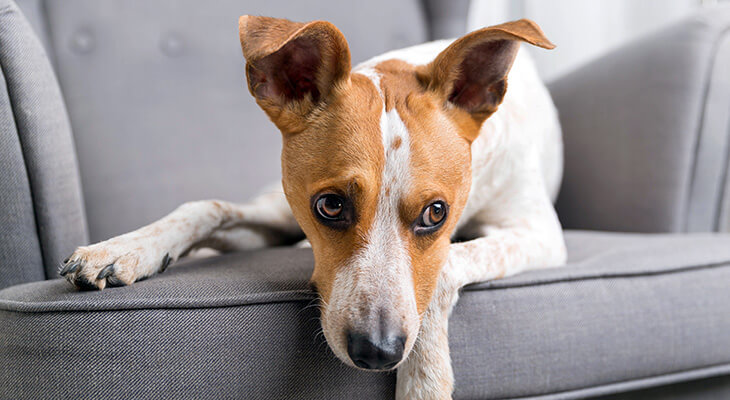
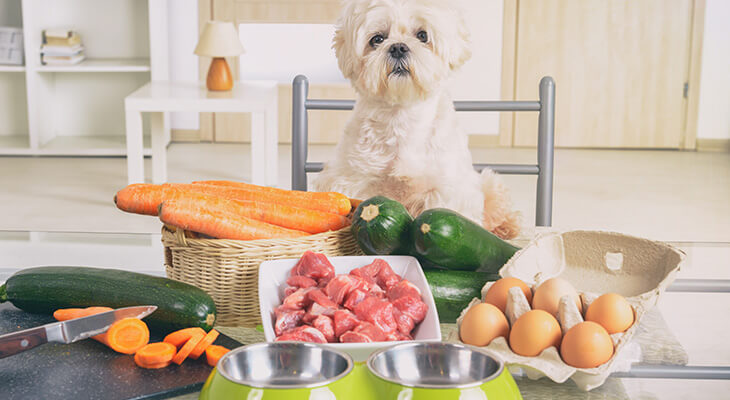
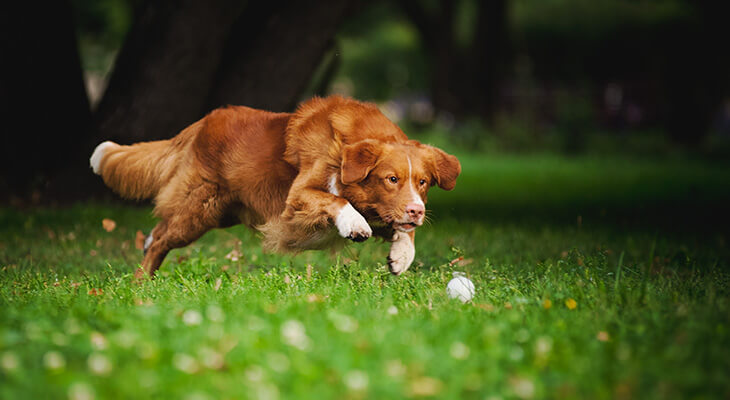
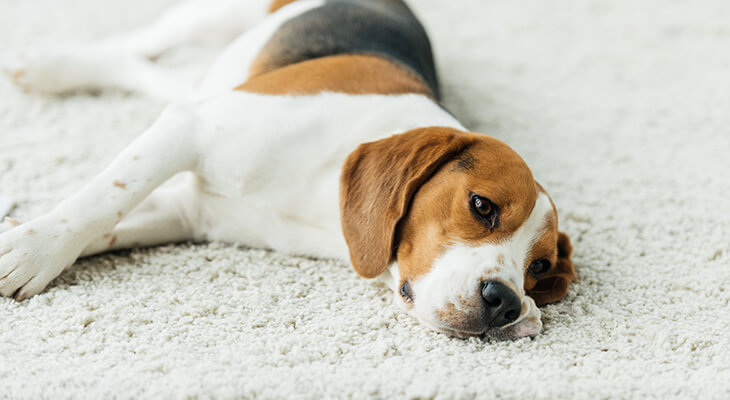
my dog started by chewing/licking warts on both paws. now they are like craters with the middle weeping she never stops apart from sleeping my vet has seen her and just said put baby sox on .so today I bandaged lightly but had to take them off as the blood or whatever came through but they have stuck on the wound so off to vet in the morning
My dog started licking her paws incessantly this summer. She has licked the hair off the top of both paws. Started giving her Benadryl morning and night. Helped a little(?). Also switched her back to a dogfood we gave her when we first rescued. We didn’t think it food related, but nothing else has changed lately. Not much help there. I was wondering if there could be something in the grass of our yard. Nothing we use with her has changed. If so, hopefully, cold weather takes care of that. Puzzling.
Judy, I am sorry that your dog is having this problem. Pets are not great at telling us what exactly is wrong. This is not surprising. I see this condition frequently in warmer weather when dogs start to spend more time outdoors. The licking of the paws may be due to an allergy, irritation or other cause. Grass allergies are very common for example and can be made even worse by mowing the grass which stirs up pollens and other allergens.
If you have not already, give her an allergy test with the vet. This will help determine if what she is licking has something to do with her skin or food.